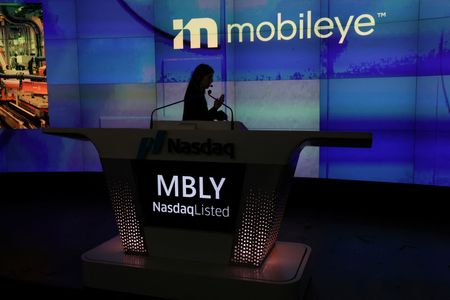 1
1 1
1
(Reuters) -Mobileye Global said on Thursday it expects a smaller operating loss for the full year as resilient demand for the company’s driver-assistance technology helped it report a better-than-expected quarterly revenue.
Mobileye, which counts BMW, Nissan and Volkswagen among its customers, benefited from strong demand for its technology in North America and Europe, which helped offset weakness in China.
Mobileye now expects an annual operating loss in the range of $98 million to $129 million, compared with its previous forecast of a loss of $166 million to $195 million.
Still, shares fell nearly 6% in a move several analysts attributed to the lack of an increase in the revenue forecast.
“Mobileye’s results were mostly positive, but… I think you have some investors lightening their positions on the good news,” said Michael Schulman, chief investment officer at Running Point Capital.
The company reiterated its annual revenue forecast range of $2.07 billion to $2.11 billion.
In the second quarter, Israel-based Mobileye reported revenue of $454.0 million, compared with analysts’ estimates of $450.6 million, according to data from Refinitiv.
“Future business highlights of the quarter included tangible evidence of the depth of our relationship with VW Group and an expansion of meaningful engagements for our advanced portfolio to 9 large OEMs,” CEO Amnon Shashua said.
The company said in May that Porsche and Volkswagen Commercial Vehicles would partner with Mobileye to incorporate its automated driving software in future models.
Its gross margins widened to 49% for the quarter from 45% in the previous three months, helped by a more than 10% quarter-on-quarter decline in total operating expenses.
On an adjusted basis, the company earned 17 cents per share, beating estimates of 12 cents.
Mobileye, in which Intel retains majority ownership, listed on the Nasdaq last year after raising $861 million in an initial public offering. Intel had bought the company in 2017 for $15 billion.
(Reporting by Samrhitha Arunasalam in Bengaluru; Editing by Shounak Dasgupta)